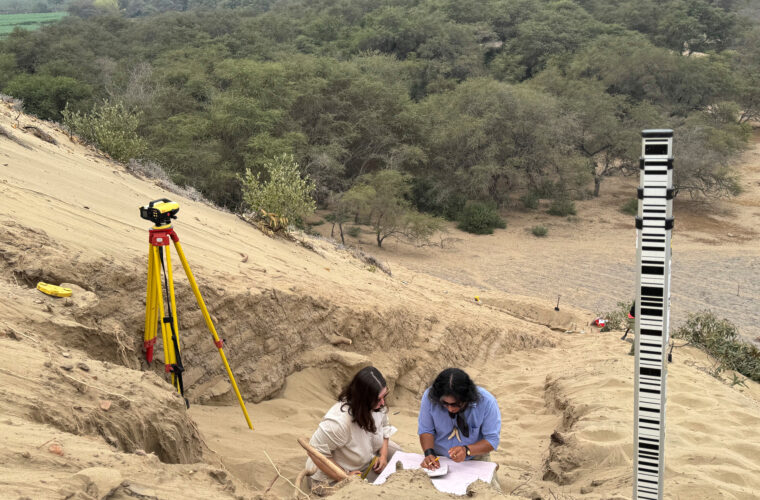Virtual Medicine: Rebecca Lee interviews Dr. Phil McElnay, CEO and Founder of MedAll
One issue the pandemic has highlighted globally is the need for better resources and the latest information regarding medical issues. Groundbreaking technology can be credited with helping countries measure and cope with outbreaks of the virus as well as increasing the speed of efficiency across the board. One of those key efficiencies is medical training and ensuring those at the forefront are equipped with all the necessary skills to cope with the unexpected.
With doctors now being able to diagnose patients without seeing them face to face, and a report from Nature Medicine revealing that 12 million people per year left their doctor’s office with a potentially harmful misdiagnosis, many have turned to technology and learning to help with diagnostic accuracy. According to statistics from Eurostat, in 2020 alone, there were 454,000 GPs in existence across the EU, with many of them studying for a minimum of six years to receive their qualifications.
Virtual Medicine
How has technology sped up the learning process for healthcare workers, and what does the future hold for an under-equipped industry? Rebecca Lee spoke to Dr. Phil McElnay, CEO and Founder of MedAll, a global virtual medical school.
So Phil, tell me about MedAll; where did the concept come from?
MedAll is a virtual medical school that helps wonderful healthcare organisations deliver their medical education sessions virtually and host tens of thousands of colleagues worldwide in each event. This happens regardless of where they live, their income status, and who they know. The creation of MedAll means that every healthcare professional everywhere has the same opportunity to learn, and, in my opinion, great medical education means great medical care!
As a doctor, I was extremely interested in education. I had an academic role and taught other medics in the UK, and another role where I trained colleagues on rare diseases across multiple geographies. To be honest, I was astounded at how inequitable healthcare training was. Access to great training really seemed to depend on who you knew, how much money you had, or where you lived. The more I saw this, the more I had an overwhelming sense of injustice, and hence I reached the conclusion that we needed to solve this problem.
What’s the ambition for MedAll?
We want to make great healthcare training accessible to every healthcare professional everywhere. We aim to train 4 million healthcare professionals by 2027 across low, middle, and high-income countries.
Healtcare Professionals
In your opinion, what are the biggest challenges when it comes to using tech to help train healthcare professionals?
Well, there are a few! We’ve seen that virtual training is great at increasing accessibility, but delivering it live isn’t always a magic bullet to solving accessibility issues. Many who need greater access don’t necessarily have a strong internet connection, so an exclusively live training session doesn’t make healthcare training more accessible. This is why we made it easy for organisations to deliver their live training on MedAll and to convert their live training to on-demand training automatically. We also enable those who watch on-demand to get certified for doing so.
Another important challenge is in developing practical skills. We’ve been helping organisations deliver all sorts of training. Being at the forefront, Doctors need to have both knowledge and skills. We’re increasingly interested in how we can best support organisations to deliver practical education online, even if it often requires innovation and creativity.
Accessible Training
You spoke about the need for accessible training; what problem is MedAll looking to solve exactly?
We face a workforce crisis in healthcare. The World Health Organization estimates that the world needs 18 million more healthcare professionals by 2030. What’s even worse is that the world doesn’t have enough resources to train them.
Some low-income countries have five times fewer medical schools than other regions worldwide. In fact, there are 11 countries on the continent of Africa without a single medical school. In high-income countries, medical students graduate with up to $200k of debt, and specialty doctors are paying up to $90k of out-of-pocket training costs. Tens of thousands of dollars are spent on courses, conferences, and associated travel costs. Amid a cost-of-living crisis, even in high-income countries, these costs limit the best training to those with the greatest ability to pay or travel.
I believe we need to think differently. If we are to train enough healthcare professionals needed to care for our families and communities, we need to make healthcare training more accessible everywhere.

MedAll – Virtual Medicine
COVID continues to prove a challenging time for the healthcare industry. What other technology do you believe the sector should adopt to help deal with shortages in staff and training?
Like most, Covid has been a horrendous time. If we don’t invest in, support, and train our healthcare professionals today, we won’t have any tomorrow. I still practice as a doctor alongside my role at MedAll and have seen the strain it has put on colleagues, patients, families, and the healthcare system.
Some other great bits of technology are helping to do that. For instance, Proximie is a technology that helps surgeons remotely guide other surgeons mid-operation. Concentric Health is a tool that helps doctors consent to patients for operations easily and reliably. What I love about those bits of technology is that they have both been developed by medics who have a deep and meaningful understanding of the pains faced by their colleagues. I think clinician-led innovation is what is going to change the game!
Have you any plans for expansion or growth for MedAll in 2023?
By 2023, our target is to make regular medical education sessions available for colleagues in ninety-five percent of World Bank Low and Middle Income countries. In high-income countries, our target is to ensure at least seventy-five percent of courses and conferences are made accessible to those who may not be able to travel for whatever reason. And in doing both of those, we aim to train up to three times more healthcare professionals next year.
Healthcare Industry
How many people currently use the platform, and what kinds of virtual training are proving most popular?
Would you believe that In just over 12 months, we have powered 5000 virtual and hybrid healthcare courses for 1400 healthcare organisations in over 20 countries? What’s impressive is that those organisations from 20 countries have progressed to train colleagues in 171 countries. And collectively, they’ve had hundreds of thousands of delegates at their events.
Shorter 30 – 60 minute teaching sessions have exponentially increased over the last 12 months, and, to be honest, we don’t see those returning to face-to-face ever again. They are just so much more accessible to the healthcare community when delivered online.
Medical Training
Can you tell us a bit about the technology powering the platform?
Certainly, technology is really important here! A big vision is excellent, but for that to work, our tech needs to solve real-life, irritating problems for individual healthcare organisations immediately. MedAll is specially designed to make the lives of those delivering healthcare education easier. We’ve built technology that automates so much of their workloads, from registration to live events, from on-demand content to certification. It means that medics can focus on providing great training for medics rather than all the admin that goes with it.
Last but not least, in your opinion, what does the future hold for medical training and new technologies?
I think we are going to see a greater sense of global collaboration. The pandemic has shown us that it is possible to work with colleagues worldwide to move the needle in healthcare. And the human body doesn’t change much regardless of where you live and work. I think we’ll see greater cross-border collaboration and a greater sense of community than ever before.
We’ll always need healthcare professionals. We’ll need more and more of them. I believe technologies that augment, empower and save time for those professionals will be the ones that succeed. And as healthcare professionals, we shouldn’t see it as a threat. AI, technology, and automation free us to provide more patient care. And that’s what matters most.



